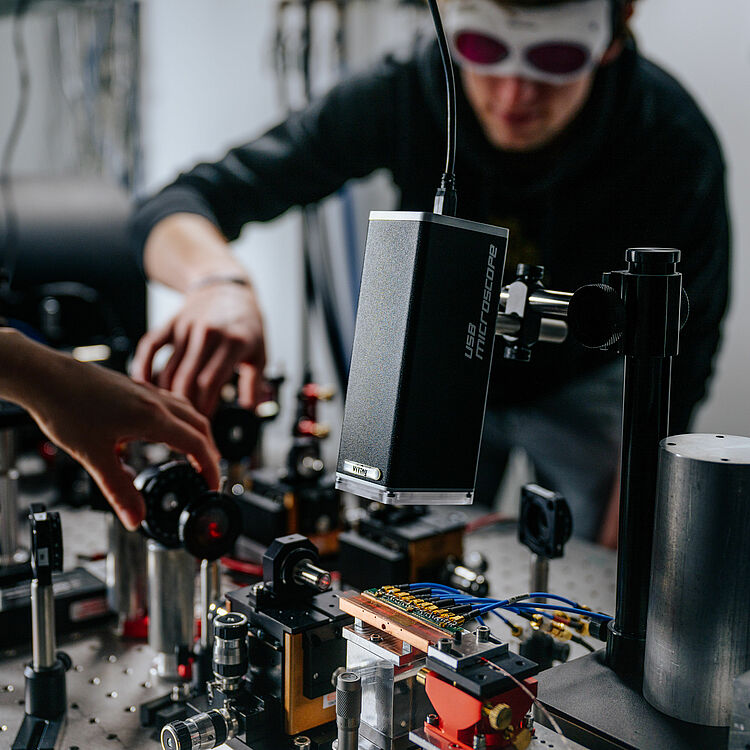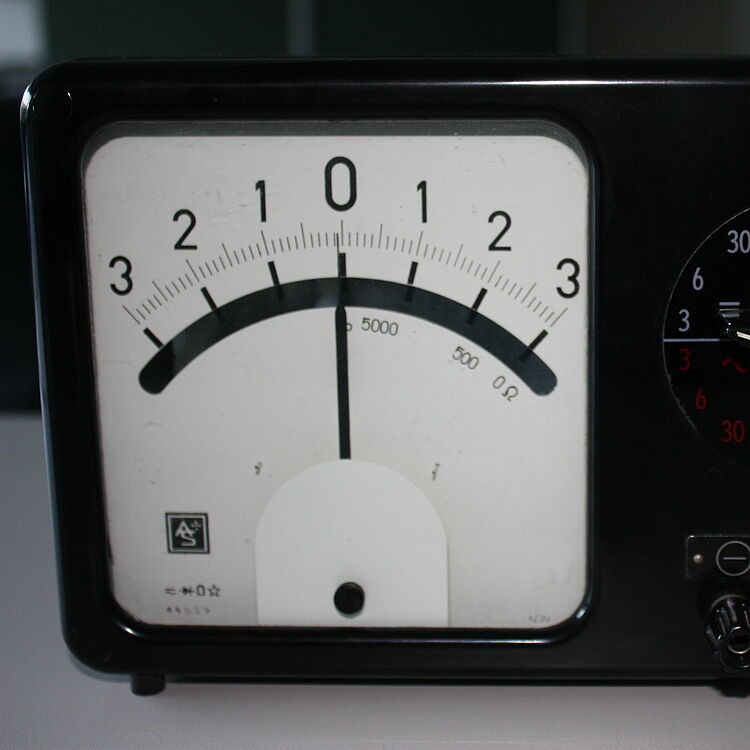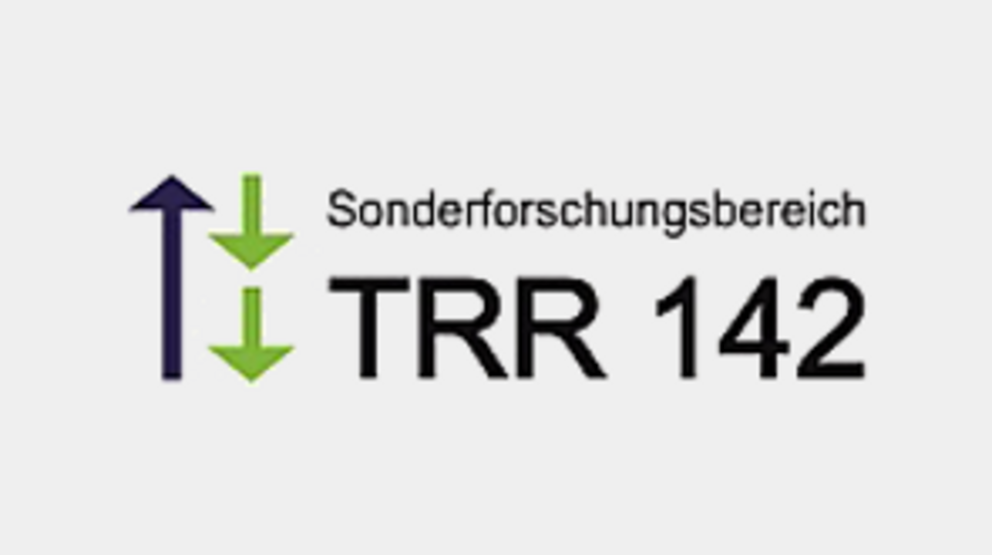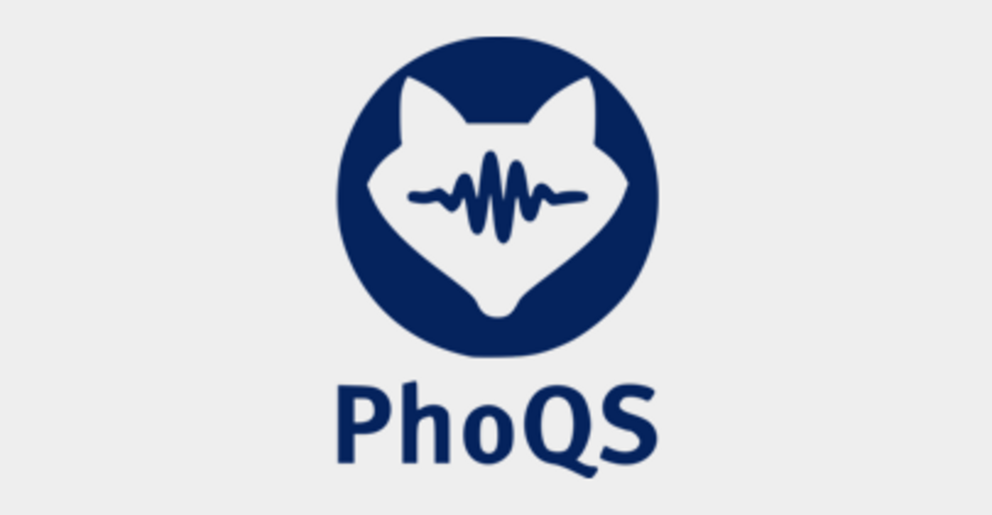Research profile
Research in the Department of Physics at Paderborn University focuses on the future-oriented key technologies of optoelectronics and photonics as well as on research into new materials and the development of innovative components.
In the field of theoretical physics, research in the area of many-particle or solid-state theory rounds off the spectrum. Young, successful professors guarantee the continuity of this cutting-edge research. In 2006, the central research institution "Center of Optoelectronics and Photonics Paderborn" (CeOPP) was founded. Physicists work together with colleagues from chemistry and electrical engineering on fundamental or application-oriented topics; excellent laboratories and clean rooms are available to them. Research work in the field of optical technologies has been funded by the DFG since 2008 through the Research Training Group GRK 1464 "Micro and Nanostructures in Optoelectronics and Photonics" and since 2014 through the Collaborative Research Centre Transregio TRR 142 "Tailored Nonlinear Photonics: From Fundamental Concepts to Functional Structures". Since 2019, the research strengths of the Departments of Physics, Computer Science and Mathematics in the field of photonic quantum technologies have been pooled in the Institute for Photonic Quantum Systems (PhoQS).
The research profile is rounded off by the area of physics didactics, in which the impact of teacher training is investigated.
Experimental Physics

The area of experimental physics is focused on the joint research priority "Optoelectronics and Photonics". Semiconductor materials are produced and used to realise novel functional micro- and nanostructures. Examples of such components are single photon sources, wavelength converters, quantum circuits, metamaterials or plasmonic antennas. The aforementioned components are of great importance for applications in the fields of quantum information processing, optical communications technology and sensor technology as well as medical and lighting technology. To achieve novel functionalities, concepts from non-linear photonics and quantum optics in particular are used and researched. The participating working groups have access to modern laboratory and clean room facilities for their work.
Theoretical physics

In Theoretical Physics, two main subject areas are worked on. In the area of "Computational Materials Science", the focus is on the prediction and physical understanding of material properties. This is done with ab initio methods such as density functional theory or many-particle perturbation theory, which allow a precise characterisation of materials without the aid of empirical parameters. In the research focus "Computational Optoelectronics and Photonics", the optical and electronic properties of solids and nanostructures are analysed on the basis of microscopic quantum theory.
Didactics of Physics

In the field of physics didactics, the impact of teacher training is being investigated. To this end, instruments for recording central components of professional action competence of prospective physics teachers (subject knowledge, subject didactic knowledge, diagnosis of learning difficulties, planning and reflection on lessons, convictions, personality traits) are being developed and validated. The studies allow statements to be made about the extent to which the competences required for the teaching profession are acquired in the course of the physics teacher training programme. In the didactics of science teaching, the empirically based development of multi-criteria successful teaching-learning and study programmes and teacher training and further education concepts is at stake at the student and teacher level. The increasing heterogeneity of the student body in primary school as well as the binding requirements for the realisation of school inclusion are challenges that currently need to be overcome.
Working groups
Emeriti, retirees
Former
Major projects
Scientific career
The Department of Physics is the right place for you and your research. You have a good to very good degree (typically M.Sc. or M.Ed.) in physics or a subject related in content, have developed passion and curiosity for your field of study and are capable of careful scientific work? Then you meet the most important requirements for a doctorate with us!
The University of Paderborn University supports researchers of all career stages with attractive working conditions and career paths, support services and target group-specific personnel development.
You might also be interested in this:



